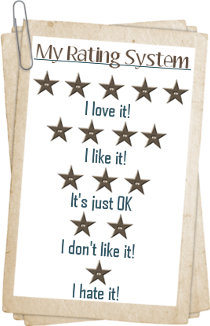
How to Create Effective Boundaries for a Stronger, Healthier Family
By Scott Gale
Getting a newspaper that lies 20 feet outside the front door should be about as time-consuming as it is strenuous. It requires virtually no physical effort and only about 20 seconds of time. So, why should this simple task cause tension and erode the delicate relationship between parent and child?
In a small suburb of
To teach his children about responsibility, he started asking his kids to get the newspaper each morning, but not formally tasking either one with the job. A couple of weeks in, his attempts to instill responsibility began to crater under the weight of unclear expectations.
On a typical morning, Brian would ask Todd to get the newspaper. Todd would respond with an immediate attempt to excuse himself from duty, citing that he got the paper yesterday or recently performed some unrelated chore around the house. When Brian then turned to Andy, he would also plead his case, claiming that he had retrieved the paper three times in a row this week, as opposed to Todd’s one, even though Todd’s effort was more recent.
The intensity and outcome of each day’s “discussion” would depend on the delicate balance between Brian’s resolve and each boy’s determination to remain glued to the television. On some days Brian would hold firm until he saw results, on other days he would concede. The fact that Brian, Todd and Andy spent several minutes to debate a 20-second task didn’t matter … this was about principle.
If you have kids, you understand how lines in the sand get drawn over trivial issues. You know the fiery potential of each small request that requires a child to detach from a television program or videogame, even if for only 20 seconds. Every request that may cause boredom, discomfort or inconvenience gets immediately challenged and rejected, putting the onus on Mom and Dad to stand their ground or quietly withdraw their demand.
Like Brian, most parents want to raise good kids who reflect their values; but they must juggle this ideal among competing career needs and personal pursuits. In the end, it’s not hard to see why so many parents struggle. Without the right tools, family life can be a thankless series of battles separated by isolated moments of contentment.
If you relate to Brian’s plight, you need the right tools, too. Follow these tips to create effective boundaries and inspire cooperative behavior in your household.
Lean on the 3 C’s, Clarity, Consistency and Commitment, when setting and enforcing boundaries.
In the midst of today’s busy lifestyle, practicing the 3 C’s at home is daunting task. It requires real effort by parents to figure out what is important to them, decide which behaviors require concrete structure, and enforce the rules even when they cause inconvenience to themselves.
What many parents don’t realize is how much more satisfying and enjoyable family life can be after the initial investment of time and effort required to establish the 3 C’s. Once children know that boundaries are firm, with real and predictable consequences tied to them, the practice of testing those boundaries becomes frustrating for the child. As living within the rules becomes routine, the tension surrounding those “sore spots” fades away.
Listen and understand. Don’t jump to conclusions.
Recurring stress in any relationship causes defensiveness. Human tendency is to hear words under such tense circumstances, then interpret them to support their existing defensive stance. In other words, true listening stops and word-twisting inadvertently becomes the norm.
Kids are especially prone to such behavior, but it is harder for them to recognize this. Therefore, the burden is put on parents to break the cycle and actively listen; to ask questions and ensure understanding; to make amends before emotional barriers become too high.
This is especially important when setting boundaries and resolving important issues, as any miscommunication or lack of understanding can lead to “band-aid” solutions that may temporarily ease the pain, but never truly fix the problem.
Focus on cleaning up a few big issues, rather than fixing all the small ones.
The old adage “
Plan fun activities that everyone in the family can enjoy together.
As the world turns and people evolve, sometimes family members forget how to enjoy each other’s company. They grow bored with favorite shared activities and never replace them. Once this happens, laughs are harder to come by and bonds become more strained.
Find activities to share a family unit, as well as individually with each member. When out shopping (i.e. shoes at a sporting goods store), keep your eyes pealed for something fun (i.e. bocce set) and bring it home to enjoy with your loved ones. Worst case, it bombs and you’re out a few bucks. Best case, you find a shared pastime to fill in until you find the next one.
Focus on improvement … not perfection.
If life were about perfection, we’d all be doomed to bitter failure. Don’t expect it from yourself or those around you. Doing so will lead to certain disappointment. Make a commitment to gradually improve. Establish the family infrastructure (i.e. 3 C’s) and communication patterns to start the ball rolling uphill. Then enjoy the continued progress you see in yourself and those around you. Remember, life is sweeter when your look forward.
Use these tips to enjoy the parenting experience to the fullest, while effectively teaching life’s many lessons and raising well-balanced kids. Parenting today is hard … no one will argue with that. That’s why it’s more important than ever before for parents to be thoughtful, prepared and resourceful.
Don’t get caught spending five minutes to solve a 20-second problem. Instead, invest the time up front and solve such issues before they become problems.
Your Family Constitution: A Modern Approach to Family Values and Household Structure by Scott Gale
What do you get when you cross two working professionals, two active kids and a dog? Chaos! For more than a decade, Scott Gale and his wife, Karen, juggled three bowling bowls- kids, personal needs, and careers. Clear and consistent expectations simply did not factor into their frantic lifestyle. In the wake of a Mother's Day family meltdown, Gale took time to evaluate his family's challenges and induce change, piecing together a powerful tool to restore family harmony. This 'Family Constitution' became the catalyst for clarity, consistency and commitment ('3C's), enabling his family to enjoy mutually understood boundaries and much-needed structure. Your Family Constitution shares Gale's innovative parenting tool and, more importantly, reveals the step-by-step process he went through to become a happier and more effective parent. He guides readers through the rewarding process of creating their own custom Family Constitution, while sharing many hilarious and personal accounts of parenting successes and failures. Your Family Constitution is a life-changing technique that parents can easily apply to make their own families stronger.
About the Author
Scott Gale is an author and instructor at






















No comments:
Post a Comment